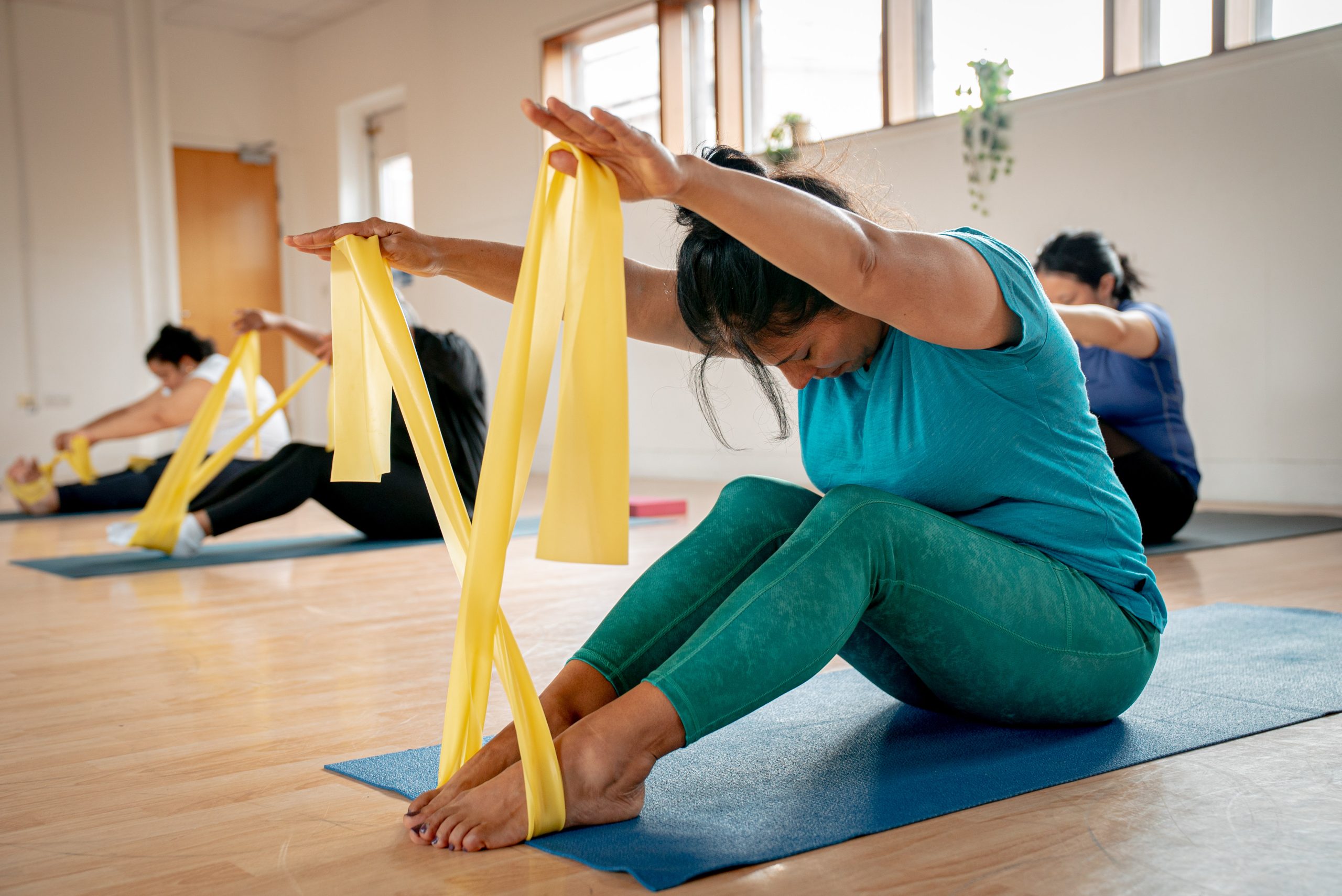Our history
The Central YMCA story began in the early 19th century with a young Somerset apprentice called George Williams (1821 – 1905).
Like many others then – and today – George came to London in the hope of finding work.
London was the largest city in the world at that time. A beating heart at the centre of the Industrial Revolution. A dirty, busy place bursting with opportunities – but also danger.
When he arrived, George was shocked by what he saw. Taverns and gambling dens filled the city’s streets – but where were the opportunities for young arrivals like him to socialise in safety?
So George and a group of fellow drapers came together with a plan. Their goal was to create a place where young men could gather and adapt to city life. Somewhere healthy and happy. Somewhere where they could do something more fulfilling.
That space was the YMCA Club.
Founded in 1844 the idea spread quickly. Today the YMCA has grown to become a worldwide organisation with 65 million members – each YMCA adapting to the needs of its own local community.
Our history – big moments
Since we were founded in 1844, Central YMCA has gone on to build London’s largest gym, train more than 120,000 health and fitness professionals and provide thousands of young people with the skills they need to turn their life around.
1844 – Central YMCA founded
George Williams (1821 – 1905), a young Somerset apprentice, and a group of fellow drapers create what has now become the global YMCA movement.
1849 – Public lectures & education classes begin
From our earliest days we offered opportunities to learn. In 1849 alone, we sold 171,213 printed copies of a YMCA London lecture held at Exeter Hall.
Today will still provide opportunities to learn languages, ceramics and holistic skills such as tai chi at the Central YMCA Club. We also also offer apprenticeships for young people nationwide (YMCA Training), as well as being one of the UK’s leading health and fitness trainers (YMCAfit).
1849 – Non-Christians welcomed
Making everyone feel welcome is an important part of who we are. Not long after we were founded we opened our doors to non-Christians – a pioneering move at the time. And today we are proud to uphold this legacy with policy of inclusivity across all areas of society.
1855 – First YMCA World Conference
The first YMCA ‘World Conference’ held which produced the ‘Paris Basis’ – an agreement about the aims of the YMCA. It also sees the launch of an international committee and headquarters, which would become the World Alliance of YMCAs.
1881 – First gym
Getting active makes us all feel better. So we built our first gym in 1881 and started incorporating personal fitness into our work.
We still want to help more people get healthy. Today we welcome over 3,500 concessionary members to Central YMCA Club, from training elite athletes to cancer-rehabilitation patients.
1881 – First gym
Getting active makes us all feel better. So we built our first gym in 1881 and started incorporating personal fitness into our work.
We still want to help more people get healthy. Today we welcome over 3,500 concessionary members to Central YMCA Club, from training elite athletes to cancer-rehabilitation patients.
1911 – Opened our first purpose-built home
The original Central YMCA on the corner of Great Russell Street was designed by architect R Plumbe. It included halls for meetings, restaurants, a gym, swimming baths, social rooms, a boys department and 240 bedrooms.
1914 – World War I
Our work with the forces stretches back to the early 20th century. Central YMCA joined British YMCA in supporting the troops across the English Channel. YMCA huts provided soldiers with food, drink and free paper and envelopes so they could write home.
Today we continue to work closely with the armed forces. We are recognised as a preferred supplier by the Career Transition Partnership (CTP) – the official provider of Armed forces resettlement.
1916 – Tackling unemployment
A YMCA employment department is set up in England to deal with unemployment, finding jobs for 38,000 ex-servicemen.
1931 – British Boys for British farms
The YMCA sets up the ‘British Boys for British Farms’ initiative which benefits 25,000 young people.
1939 – World War II
YMCAs from all around the world joined together to assist prisoners of war in 36 nations.
1977 – Current Central YMCA Club opened on Great Russell Street, London
Our current Central YMCA Club was designed by Ellesworth Sykes Partnership. It provided us with more space to achieve our ambition of making people happier, healthier and more fulfilled.
Today it includes a 25m swimming pool with a sauna and steam room and six exercise studios – including a state-of-the-art cycling studio. We now have the space to offer more than 125 classes per week.
1970s – YMCA Training
The deep recession that gripped the UK during the 1970s was crippling the lives of many young people with mass unemployment. We saw this and wanted to help.
We knew that anyone employed in a job they love is not only healthier and happier, but also plays a more fulfilling role in their community. So we created the non-for-profit YMCA Training. It helps young people find new opportunities through work, training and apprenticeships.
1984 – YMCAfit
By the 1970s our club was a pioneer in the new “get fit” trend. But there was no decent training available for fitness professionals. So we created YMCAfit (formerly known as YMCA Training and Development) to deliver the first Exercise to Music course in 1984.
Since then, we have since trained over 120,000 instructors. In fact, almost every gym in the country now has YMCA trained and qualified staff.
1989 – Y Touring
Y Touring was launched to support thousands of school children through theatre to understand and explore social and ethical dilemmas through performances. The group continues it’s great work independently and is now know as Theatre of Debate.
1997 – Positive Health
The Positive Health programme was set up as part of Central YMCA’s brave response to the HIV crisis of the 80s and 90s, growing to become the leading exercise referral programme for those living with HIV.
1998 – YMCA Awards
In 1998 we launched YMCA Awards (formerly Central YMCA Qualifications), the UK’s first awarding organisation to specialise in health and fitness qualifications. We had a vision to create a gold standard across the industry. Something professionals and clients alike could trust. Something that would assure the industry stayed safe.
Today YMCA Awards remains a leading awarding organisation offering a wide range of qualifications across the world. Around 30,000 certificates are awarded every year.
2010 – InstructAbility
Central YMCA and Aspire launch InstructAbility, a programme that provides free fitness industry training and support for disabled people. The programme went on to win the London Inspiremark Award in 2012 and the Big Society Award in 2013.
2013 – Merged with YMCA Training
By merging YMCA Training with Central YMCA, we created an education-focussed national charity that can reach more than 60,000 people across the UK every year.
2015 – Be Real campaign
To combat the rise in body image concerns and low self esteem we founded the Be Real campaign in 2015 in partnership with Dove. It was launched in response to the Reflections on Body Image report from the All Party Parliamentary Group for Body Image chaired by MP Caroline Nokes and co-ordinated by YMCA.
Part of the campaign’s work is to make sure young people learn early on that they don’t need to be perfect. We want to celebrate healthy and happy, not just quick wins.
2015 – YMCA KX
We opened YMCA KX, a yoga and pilates studio in Kings Cross dedicateted to movement and wellbeing
2016 – The Big Conversation
This autumn we are launching an exciting exploration into the future of wellbeing with a conference held at YMCA Club in collaboration with The School of Life.
The event is themed around the concept of ‘the ideal gym’, giving us the opportunity to consider how a gym could cater not only for our bodies, but our emotional, psychological and spiritual needs too.
Speakers include philosopher Alain de Botton, elite sport psychiatrist Professor Steve Peters and leading authority on innovation and creativity Charles Leadbeater. Come along and join in the debate.
2017 – Positive Strokes recognised in national award
Positive Strokes, our swim team for people living with HIV was recognised at the Swim England National Awards.
2018 – Fitness Training Academy
We launched the Fitness Training Academy, a free 2 year Personal Training programme aimed at making the fitness industry more accessible to young people.


